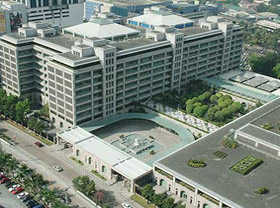
ADB urges firm actions for Central Asia at COP16 climate talks
“Central and West Asian nations are acutely aware of their vulnerability to climate change impacts, and are already taking positive steps to strengthen their resilience and reduce the greenhouse gas emissions associated with their development,” Mr. Kuroda said. “These measures must be enhanced with greater financial and technical support, irrespective of the formal outcomes of the Cancun talks.”
The United Nations Framework Convention on Climate Change Sixteenth Conference of Parties (COP16) negotiations in Mexico aim to provide a successor to the Kyoto Protocol that ends in 2012. Delegates are working toward a new global agreement that will include the use of market mechanisms, increased attention to emissions from deforestation and land-use change, technology transfer from rich to developing nations, and new emission-reduction measures.
Largely arid or semi-arid, Central and West Asia is highly vulnerable to predicted increase in temperature and variability, extreme precipitation, and rising surface temperature attributed to anthropogenic global warming. The region’s culturally diverse population relies heavily on fragile land and water resources for its livelihood. The region’s vulnerable river basins are also a principal source of hydropower and potable water. These river basins are at considerable risk from climate change due to glacial retreat and a combination of increasing and more intense flash floods and drought.
In the Kyrgyz Republic and Tajikistan, glaciers in the Pamir and Tien Shan mountain ranges are retreating, and ongoing glacial melt continues to threaten water resources and power supply in the Amu Darya and Syr Darya river basins. In Afghanistan and Pakistan, glacial thinning is accelerating in the Hindu Kush mountain range, where the volume of glacial ice has decreased by about 30% over the past 50 years.
Falling crop yields from heat and water stress are already adversely affecting the economies of Pakistan and Uzbekistan. By 2050, Kazakhstan, a major wheat producer, may see significant decreases in productivity. Even larger drops in crop yields are predicted for Armenia, Pakistan, and Tajikistan.
The Intergovernmental Panel on Climate Change (IPCC) predicts that warmer temperatures, combined with higher evaporation and glacial melt, will put Central Asia’s dry lands under increasing stress, so that by mid-century, available water resources will have decreased by 10% to 30%. The recent floods in Pakistan are consistent with what has been predicted to occur as a result of climate change, with increased temperatures and more extreme weather.
The Central and West Asia subregion has begun to respond, with major studies underway on glacial melt impacts on water resources, and increased spending on agricultural research to identify drought and heat-resistant crops. ADB is supporting these efforts in part through a collaborative trans-regional program. The Central Asian Regional Economic Cooperation (CAREC) Program is developing a master plan to promote energy security, including attention to climate change threats. ADB is also supporting a water and adaptation, a TA on the Economics of Climate Change, and is on the verge of completing all-hazard maps and renewable energy (solar and wind) atlases for all 10 developing member countries across the region. Both efforts will help Central West Asian countries effectively invest in climate-proofing (climate adaptation) and renewable energy (climate mitigation).
Central and West Asia urgently needs additional support from the international community to reduce their vulnerability and promote climate resilient development. The region also offers abundant greenhouse gas mitigation opportunities and can attract investors looking to expand their carbon mitigation and clean energy portfolios in the region. These countries will be unable to cope with the adverse effects of climate change and reduce their emissions without scaled up financial support.
ADB, based in Manila, is dedicated to reducing poverty in Asia and the Pacific through inclusive economic growth, environmentally sustainable growth, and regional integration. Established in 1966, it is owned by 67 members – 48 from the region. In 2009, it approved a total of $16.1 billion in financing operations through loans, grants, guarantees, a trade finance facilitation program, equity investments, and technical assistance projects. ADB also mobilized cofinancing amounting to $3.2 billion.